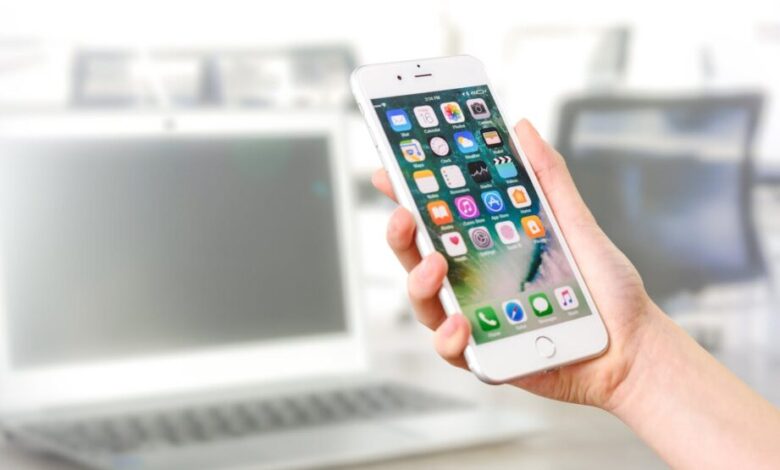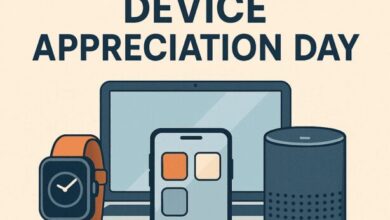Here’s How Mobile Apps Are Making Life Less Stressful

In today’s busy world, stress is hard to avoid. With work, family, errands, and constant notifications, it’s easy to feel overwhelmed. Surprisingly, the same phones that often feel like a source of stress can also provide relief. Mobile apps are helping make daily life more manageable and less stressful.
From managing money to staying focused, the right apps offer more control over routines and help maintain a sense of balance. Here’s how they’re quietly making a difference.
Making Finances Simpler and Less Worrisome
Financial stress often builds when things start slipping through the cracks—missed bills, untracked expenses, or vague awareness of where your money is going. Managing it all mentally can become exhausting. Mobile apps help by bringing structure and clarity to daily money matters.
These tools track spending, set budgets, and send reminders so key tasks don’t fall behind. Over time, they make financial management more consistent and less stressful.
But daily budgeting is only part of the picture. Uncertainty around long-term financial health, especially credit, can quietly add pressure. Without visibility into your credit score, small issues may go unnoticed and grow into bigger problems.
A credit monitoring app helps fill that gap. It provides regular access to your credit score and activity, making it easier to catch errors, track changes, and stay informed. With that awareness, you’re not just managing expenses—you’re also protecting your financial stability and reducing the stress that often comes with the unknown.
Organizing Chaos with Productivity Apps
Trying to remember everything on your to-do list can be exhausting. Whether it’s work tasks, appointments, or personal goals, there’s a lot to keep track of. Productivity apps like Todoist, Notion, Trello, and Google Keep can help organize your life and take some pressure off your memory.
These apps let you set deadlines, prioritize tasks, and even break large projects into smaller steps. Some can sync across devices, so your list is always within reach. Having everything in one place makes it easier to plan ahead and avoid last-minute stress.
Even better, many of these apps allow you to set up recurring tasks—like taking your meds or paying the rent—so you don’t have to keep entering them manually. That small change alone can take the weight off your shoulders.
Managing Mental Health at Your Fingertips
Mental health apps have come a long way in recent years. Tools like Calm, Headspace, and Sanvello offer support that’s both private and easy to access. These apps provide guided meditations, breathing exercises, mood tracking, and even lessons based on cognitive behavioral therapy.
You don’t need to block out time for a full therapy session—just a few minutes a day with one of these apps can make a difference. They’re especially helpful during moments of stress or anxiety when you need to pause and recenter yourself.
Many of them also include features to help you build healthy habits, like morning check-ins or gratitude journals. The goal isn’t to replace professional care, but to give you tools to manage your mood and reduce stress when life gets hectic.
Streamlining Daily Tasks with Automation
Small, repetitive tasks might not seem like a big deal, but over time, they add up and create mental clutter. Automation apps can help simplify these chores so you can focus on more important things.
Apps like IFTTT and Zapier let you connect your favorite services and create shortcuts. For example, you can set it so that when you post a photo to Instagram, it automatically saves to Google Drive. Or when your phone connects to your home Wi-Fi, it can silence notifications.
Even built-in assistants like Siri and Google Assistant can help with quick reminders, hands-free texts, or setting timers while you cook. These time-saving tools reduce the need to remember every detail, which can take some pressure off your mind.
Improving Physical Health with Wellness Apps
Physical health has a strong impact on mental health. When you eat well, move your body, and get enough sleep, you’re more likely to handle stress better. Wellness apps make it easier to stay on track without feeling overwhelmed.
Apps like MyFitnessPal, Fitbit, and Nike Training Club let you track workouts, log meals, and set health goals. Some even remind you to drink water or take breaks throughout the day. Sleep trackers can show you patterns and help you figure out how to get better rest.
By staying consistent with small healthy habits, you can build a stronger foundation for managing stress over time.
Finding Calm in Daily Commutes and Waiting Times
We all spend time waiting, in traffic, in lines, or just between appointments. These small pockets of time often go to waste or add to our frustration. But with the right apps, they can actually become moments of calm.
Listening to podcasts, audiobooks, or relaxing playlists through apps like Audible, Spotify, or Libby can turn a stressful commute into something enjoyable. Whether you’re learning something new or just unwinding with music, this kind of content can lift your mood and shift your mindset.
Some apps even offer short audio tracks specifically designed to reduce stress, like nature sounds or guided breathing. It’s a simple way to make better use of idle time.
Creating Digital Boundaries with Focus Apps
Sometimes, the phone itself can be a major source of stress. Constant pings, endless scrolling, and too many open tabs can leave you feeling mentally scattered. Focus apps help set boundaries so you can use your phone more intentionally.
Apps like Forest, Freedom, and Focus Keeper are designed to block distractions and encourage deep focus. Some let you set timers for focused work sessions, while others limit access to certain apps or websites during key hours.
By taking short breaks from the digital noise, you give your brain time to rest. That break can be the difference between feeling burnt out and feeling in control.
Mobile apps aren’t just for games and social media anymore—they’ve become practical tools for handling real-life stress. Whether you’re trying to get a better handle on your finances, organize your day, improve your health, or just take a breather, there’s likely an app that can help.
The key is using them with intention. Instead of letting your phone add to your stress, you can choose apps that support your peace of mind. With the right mix, your phone can become a quiet ally in living a more balanced, less stressful life.



